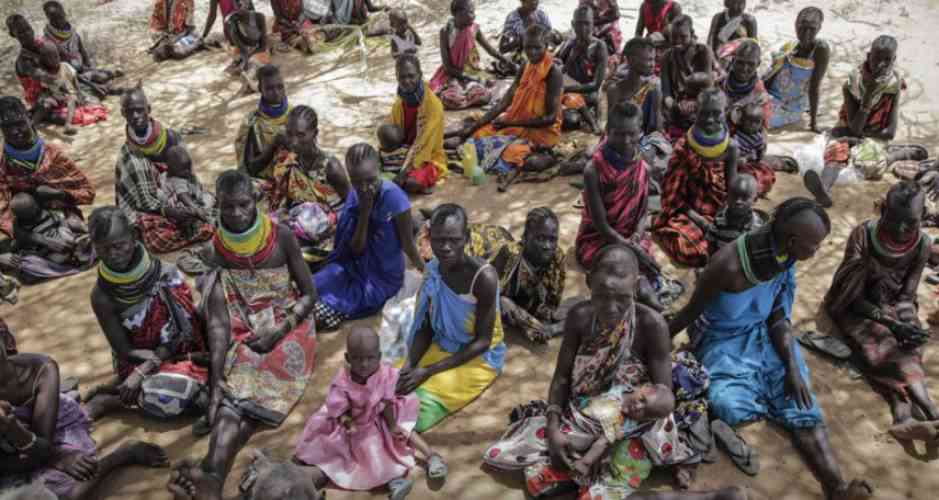
Villagers gather during a visit by United Nations Under-Secretary-General for Humanitarian Affairs Martin Griffiths, in the village of Lomoputh in northern Kenya, May 12, 2022. Griffiths visited the area on Thursday to see the effects of the drought which the U.N. says is a severe climate-induced humanitarian emergency in the Horn of Africa. More than 50 million people in the wider East African region are expected to face acute food insecurity this year, a regional bloc said Friday July 22, 2022, warning that some 300,000 in Somalia and South Sudan are projected to be under full-blown famine conditions. [AP]
Legislators from eastern African parliaments have called on regional governments to allocate more funding to agriculture and livestock farming in order to address food insecurity.